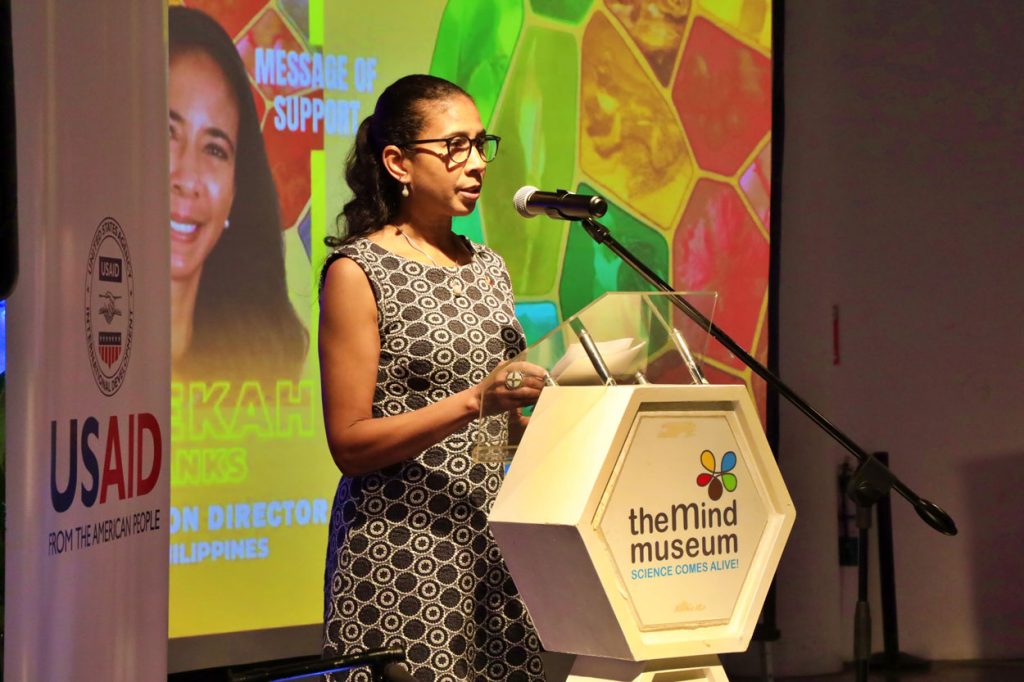 An official of the United States Agency for International Development (USAID) has warned that global biodiversity loss is happening right now and called for massive efforts to stop the crisis and prevent its catastrophic impacts.
An official of the United States Agency for International Development (USAID) has warned that global biodiversity loss is happening right now and called for massive efforts to stop the crisis and prevent its catastrophic impacts.
“The current state of global biodiversity loss around the world is alarming,” USAID Deputy Mission Director Rebekah Eubanks said during the celebration of the International Day for Biological Diversity on May 22 in Taguig City.
“Species are disappearing at an unprecedented rate because of habitat destruction, climate change, pollution, unsustainable agricultural practices, and exploitation of natural resources,” Eubanks said at the gathering of government officials, advocates and stakeholders led by the Department of Environment and Natural Resources Biodiversity Management Bureau (DENR BMB).
“Biodiversity loss not only threatens the survival of countless species, but also undermines the stability of ecosystems, impacting human wellbeing and livelihoods,” Eubanks pointed out. Biodiversity refers to all life forms on the planet.
This year’s theme and hashtag, #BePartofthePlan, emphasizes that one agency or one governing body cannot support conservation efforts alone. “We must all take action to safeguard these precious resources for future generations,” the USAID official emphasized.
Under the leadership of DENR Secretary Maria Antonia Yulo Loyzaga, the DENR has adopted a whole-of-government and whole-of-society approach where partnerships and linkages are formed with other government agencies, the private sector and all stakeholders for ecosystems protection, conservation and integrity and the resilience of communities that surround these.
USAID has joined forces with the Philippine government to protect the country’s rich biodiversity by developing a national environmental law enforcement action plan to improve cooperation and coordination among national government agencies, Eubanks said.
In Palawan, considered the Philippines’ last ecological frontier, USAID supported the creation of the country’s first-ever province-wide plan for forest and landscape restoration to help manage the aftermath of natural disasters. The plan seeks to restore 71 percent of forests that were damaged over a five-year period in northern Palawan.
Eubanks also took the opportunity to announce the launching of the Sukat ng Kalikasan toolkit, developed in cooperation with USAID’s Sustainable Interventions for Biodiversity, Oceans and Landscapes or SIBOL project and the DENR.
“Sukat ng Kalikasan” or Measurement of Nature, is a product of a collective action to measure the country’s ecological, socio-economic and cultural values and baselines. This approach improves the accuracy of determining conservation targets and measuring ecosystem services, and will provide science-driven, evidence-based guidance to protect and manage the country’s natural resources.
The toolkit was developed, for the first time, to account for the value of the Philippines’ rich natural resources. Involved in the Sukat ng Kalikasan initiatives are the Bureau of Fisheries and Aquatic Resources, National Economic and Development Authority, Philippine Statistics Authority, National Commission on Indigenous Peoples and National Commission for Culture and the Arts.
In the same event was the launch of the Biodiversity Crisis Escape Room and MIND S-COOL (Mind is Cool), a two-part television program designed to introduce and promote biodiversity conservation concepts to a wider audience.
The Biodiversity Escape Room has biodiversity-related puzzles and challenges that visitors have to solve to get out of the room. It will be brought to Subic, Palawan, and Davao to allow more Filipinos to experience this hands-on learning and interactive activity on safeguarding the natural world. #












